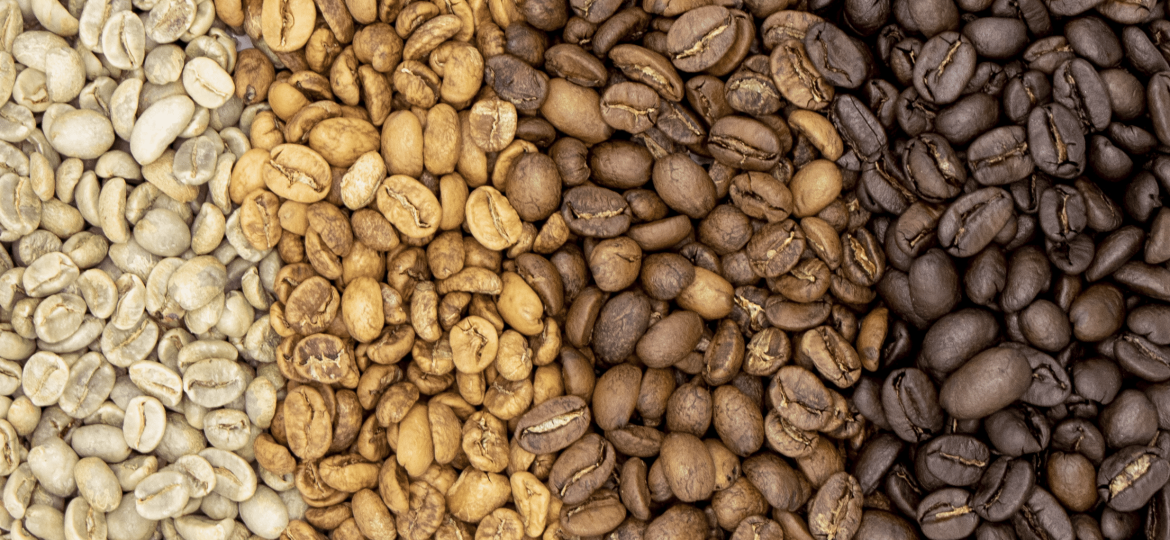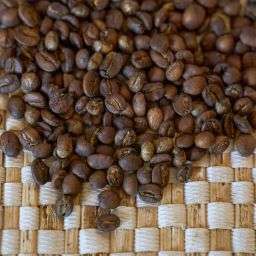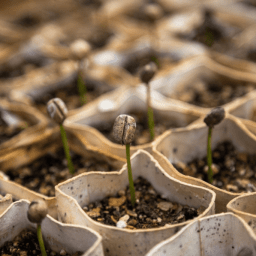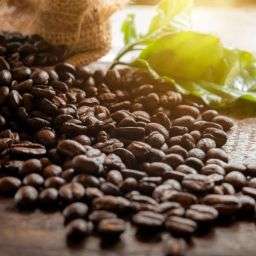
The world of flavored coffee offers a vibrant palette of tastes, transforming the traditional coffee experience into a sensory journey with endless possibilities. This evolution in coffee culture caters to a variety of preferences, blending the rich, robust essence of coffee with a myriad of flavor profiles.
From the subtle to the bold, flavored coffee beans are crafted through both natural and artificial means, each method imparting unique characteristics to the beans. Natural flavoring leverages the inherent qualities of the coffee bean, influenced by its geographical origin and processing, while artificial flavoring introduces synthetic compounds to achieve desired tastes.
The Process of Making Flavored Coffee Beans
The flavor profile of coffee beans is significantly shaped by their geographical origin. Factors such as climate, soil, altitude, and processing methods contribute to the unique taste characteristics inherent in the beans. For instance, South American coffee is often noted for its mild, nutty flavor, while African beans are celebrated for their fruity and floral notes.
This geographical diversity lays the groundwork for natural flavoring, where the intrinsic flavors of the beans are highlighted or subtly altered through the roasting process and the addition of natural ingredients like spices or nuts.
Natural Flavoring Process
Enhancing coffee beans with natural flavors involves a careful selection of spices, nuts, and sometimes even fruits, introduced during the roasting process. This method allows the natural essences to infuse the beans, enriching them with a completely new yet inherently natural flavor profile.
The roasting stage is crucial, as it determines the intensity and depth of the flavor infusion, ensuring that each bean carries the intended aromatic and taste nuances.
Chemical Infusions and Coatings
Artificially flavored coffee beans are created by introducing synthetic flavorings to the beans after roasting. This process involves the application of chemical compounds designed to mimic natural flavors. These compounds are usually sprayed or coated onto the beans, ensuring that the flavor adheres well and is evenly distributed across each bean.
Commonly used chemicals include propylene glycol, which acts as a carrier for the flavoring agents, allowing them to bond with the coffee beans effectively.
Post-Roasting Process
After the initial flavor infusion, the beans undergo a post-roasting process where they are coated with additional flavorings. This step is designed to enhance and seal in the artificial flavors, preparing the beans for packaging and distribution.
The use of binding agents, often oil-based, ensures that the flavors remain intact and are released effectively during brewing. This method allows for a wide range of flavor possibilities, from classic vanilla and hazelnut to more innovative and exotic blends.
Home Flavoring Methods
Using Spices and Syrups
For those looking to introduce flavor to their coffee at home, spices and syrups offer a straightforward and accessible method. By adding spices such as cinnamon or nutmeg directly to the coffee grounds before brewing, one can infuse the coffee with rich, aromatic flavors.
Similarly, syrups can be mixed with freshly brewed coffee to tailor sweetness and flavor to individual tastes. This approach allows for experimentation with different combinations, creating a personalized coffee experience.
Alcohol Infusion
Another innovative method for flavoring coffee at home involves the use of alcohol. Soaking roasted coffee beans in a jar with alcohol like bourbon, rum, or whiskey can infuse the beans with unique flavors. This process, which typically lasts about 24 hours, marries the complex notes of the alcohol with the coffee’s natural profile, resulting in a distinctive and richly flavored brew.
Flavoring with Oils and Syrups
For those seeking a more in-depth DIY flavoring process, using coffee flavoring oils and syrups can provide a deeper level of customization. After roasting, coffee beans can be coated with flavoring oils or syrups, then mixed thoroughly to ensure an even distribution of flavor.
This method requires precise measurements and timing to achieve the desired intensity of flavor, offering an avenue for more experienced enthusiasts to refine their craft.
Creating Custom Flavors
The art of creating custom flavors involves blending various ingredients to achieve unique and personalized taste profiles. By experimenting with different flavoring oils, syrups, and even spices, one can craft a bespoke coffee experience. This process encourages creativity and exploration, allowing individuals to develop flavors that cater specifically to their preferences.
Safety of Flavored Coffee
While flavored coffee offers a delightful twist on the traditional coffee experience, it’s important to consider the safety of consuming such products. Artificially flavored coffees often contain chemical compounds that may raise health concerns for some individuals.
Being informed about the ingredients used in flavoring processes can help consumers make educated choices about the coffee they enjoy.
Choosing High-Quality Beans
The foundation of any great coffee, flavored or otherwise, lies in the quality of the beans. Selecting high-quality beans is crucial for achieving a rich and satisfying cup of coffee. When flavoring coffee, starting with beans that have a robust and nuanced profile will ensure that the final product is not only flavorful but also of superior quality.
Paying attention to the origin, processing method, and freshness of the beans can significantly enhance the flavoring process, resulting in a more enjoyable and health-conscious coffee experience.
FAQs
Is flavored coffee safe to drink?
Concerns about the safety of flavored coffee primarily revolve around the chemicals used in artificial flavorings. While many flavoring compounds are approved for consumption, the presence of substances like propylene glycol in some flavorings has raised health questions. However, these compounds are generally recognized as safe by regulatory authorities when consumed in the small amounts typically found in flavored coffee.
Can I make flavored coffee at home?
Yes, you can easily create flavored coffee at home using various methods. Incorporating spices, syrups, or even alcohol into your coffee preparation can introduce new and exciting flavors. These techniques allow for a high degree of personalization and can be adapted based on individual taste preferences.
What are popular flavors and how to make them?
French vanilla, hazelnut, and caramel are among the most popular coffee flavors. These flavors can be achieved through the addition of syrups, oils, or by infusing the coffee beans with natural ingredients that mimic these tastes. Homemade syrups and spice blends can also be used to customize the flavor of your coffee to suit your preferences.
Does flavoring coffee affect its caffeine content?
The process of flavoring coffee does not significantly affect its caffeine content. The caffeine level in coffee is primarily determined by the type of coffee bean, roast level, and brewing method. However, it’s worth noting that some methods of flavoring, particularly those involving soaking beans in alcohol, could potentially alter the caffeine content slightly, but this change is usually minimal.
Conclusion
This article has explored the diverse world of flavored coffee, from the processes used to infuse beans with various tastes to the methods for creating your own flavored coffee at home. We’ve examined both natural and artificial flavoring techniques, highlighted the importance of selecting high-quality beans, and addressed common health and safety considerations.
The popularity of flavored coffee continues to grow, driven by the desire for personalized coffee experiences and the endless variety of flavors available. Whether you prefer the simplicity of natural spice infusions or the precision of artificial flavoring methods, the art of flavored coffee caters to a wide range of palates and preferences, enriching the global coffee culture.









